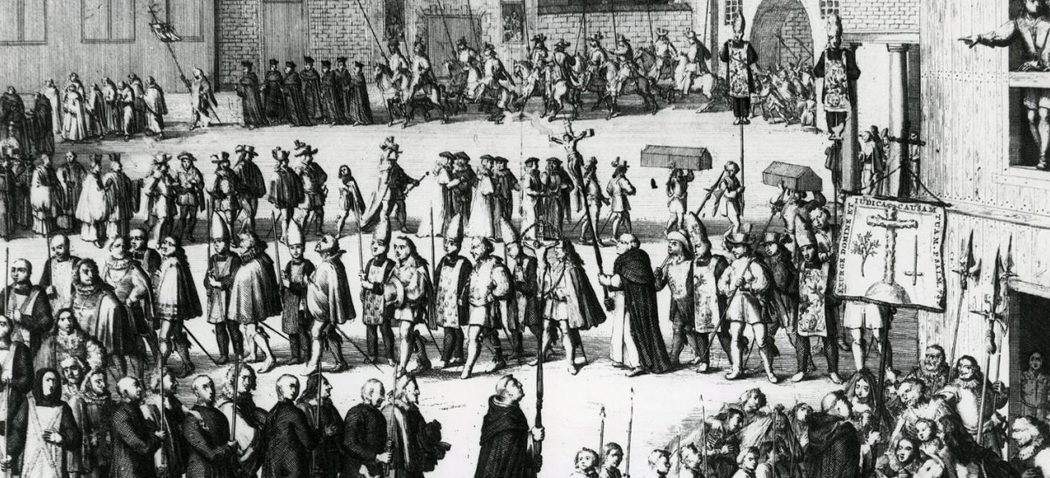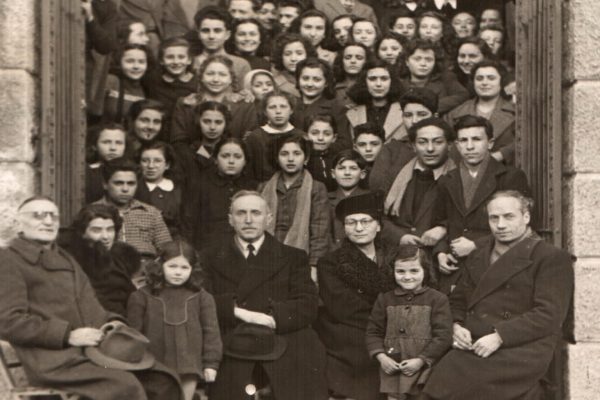James Nelson Novoa, Being the Nação in the Eternal City: New Christian Lives in Sixteenth-Century Rome (Peterborough, Ontario: Baywolf Press, 2014)
James Nelson Novoa’s Being the Nação in the Eternal City is a groundbreaking study of the lives of Portuguese New Christian agents who acted on behalf of the Converso community of Portugal within the stormy political world of sixteenth-century Rome. Beyond bringing to light the activity of these individuals, otherwise obscure to the world of Jewish Studies, Novoa adds new dimension to the operation of the Portuguese Inquisitions during the sixteenth century by drawing attention to the reality that the activities of the Inquisitions—and the fate of Portuguese New Christians—were largely determined in Rome rather than Lisbon. Far from the familiar story of New Christian victimization, Conversos found a political voice and a sense of nationally defined agency through their representatives in Rome.
Portuguese agents in the Curia of Rome formed the backbone of a diasporic community in the city—Nação. Novoa argues that it was in Diaspora that the seeds of a national identity as the Nação could and did take shape as the Portuguese agents in Rome increasingly defined themselves and were defined as a national community. They did, however, at the same time, completely embrace their Roman surroundings—joining elite Roman circles, acting as patrons to the arts, and building elaborate churches—making them a perfect model for understanding the nature of early modern Mediterranean hybrid identity. Despite their Jewish ancestry, these agents successfully received the same rights as other national communities in Rome. And, though they were often a source of political intrigue, through establishing relationships with key players in the Curia they obtained high social status otherwise denied to their brethren in Portugal.
Novoa begins with a welcome, and highly useful, survey of the history of the Converso crises in fifteenth- through sixteenth-century Portugal followed by a careful synthesis of the history of the Portuguese trading nation—critical context for understanding the “lives” he explores. Similarly, chapter three offers a comprehensive discussion of the function of “national communities” in Rome including that of the Florentines, the Genoese, and the Spanish who, from the base of their national churches, effectively lobbied on behalf of the their respective “nations.” Novoa, however, also draws attention the singularity of the Portuguese national confraternity. Not only did they receive the status of a national entity in Rome before Portugal was official declared a kingdom by the pope; that status was secured through New Christian agents.
Novoa’s profiles of the “lives” of specific Portuguese agents in Rome begins in chapter four with his analysis of Duarte de Paz, who, in defiance of his Jewish ancestry, had risen to military prominence during the Portuguese colonial wars in North Africa. As the voice of Portuguese New Christians in Rome, he made every effort to stall the official implantation of an inquisition in Portugal such as in his attempt to publicize Pope Clement VII’s deathbed brief where he expressed regrets over consenting to a Portuguese tribunal. The second profile is that of the lawyer Diogo António from Coimba, perhaps the most active of the New Christian Portuguese agents in Rome during the sixteenth century, as his career coincided with the establishment of the Inquisition in Portugal. Chapter six explores the life of the Lisbon merchant Diogo Fernandes Neto who engaged in a debate with Ignatius Loyola over the efficacy of the Inquisition and faced years of trial proceedings in Rome over corruption charges that would continue to haunt him until the end of his life in exile from both Portugal and Rome. The following chapter is dedicated to the Lamego merchant Jacome Fonseca and the physician Pedro Furtado both of whom had previously been under suspicion for Judaizing in Lamego but who later succeeded in not only defending Portuguese Conversos in Rome but also took on the role as informal diplomats for the entire Portuguese “nation.” Jacome’s brother António da Fonseca settled permanently in Rome, establishing himself as a prominent banker and member of the Portuguese community with important links to the Spanish national confraternity. The cleric Antonio Pinto in turn made inroads into the Roman Curia and served as the secretary to the Portuguese ambassador and later as the quasi-Portuguese ambassador himself in Rome for five years.
Novoa’s study strikes an exceptional balance between original archival research and a thorough engagement with current trends in recent scholarship (utilizing secondary literature written in an impressive diversity of languages). He makes extensive use of original archival materials found in the Archivio segreto vaticano and the Archivio di stato di Roma among several other smaller collections. Furthermore, the book’s documentary appendix contains thirteen highly useful transcribed documents that receive sustained analytical treatment in the text. Being the Nação in the Eternal City will be of great importance to specialists and non-specialists alike working on the Sephardic Diasporas, the Early Modern Portuguese trading nation or the political world of the Roman Curia during the sixteenth century.









